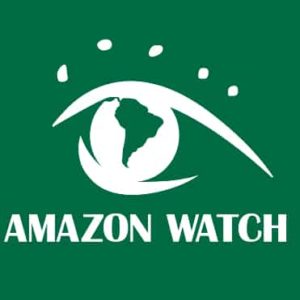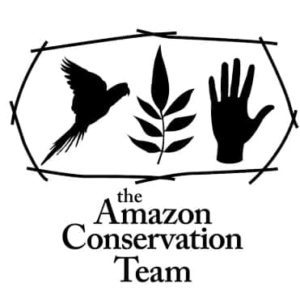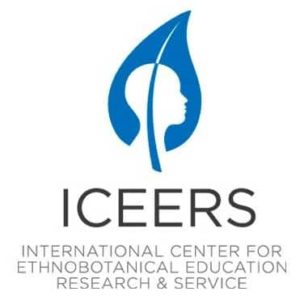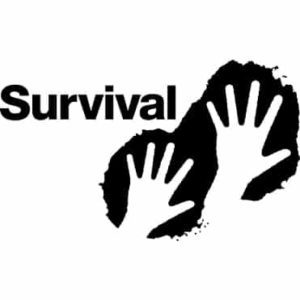Social Responsibility Program
Respect and responsibility towards sacred plant medicines and the indigenous peoples that have been their wisdom keepers is the cornerstone of everything we do at EntheoNation. We are not a nonprofit organization that receives individual donations, foundation and government grants to fund our operations. We are a for-profit publishing company with a commercial business model and commit to sacred reciprocity in the following ways.
- By Refraining from Sensationalist Media Tactics. We commit to providing deeply-researched information that provides a balanced perspective that integrates science, culture and spirituality. Psychedelics are not for everyone and we frown upon evangelists who use sensationalist tactics that overly promote benefits while minimizing risks (both physical and legal), in order to sell psychedelic products or experiences.
- By Elevating Indigenous Voices and Perspectives. The global conversation about psychedelics, including sacred plant medicines that are integral to indigeous cultural identity, is being drowned out by white voices. Where we can, we feature their voices and highlight their perspectives. This endeavor requires translation, video and audio production time and resources that we don’t always have – travel and translation expenses easily run into the hundreds if not thousands of dollars. If you wish for us to increase our indigenous coverage, you are invited to become an EntheoNation Patron on Patreon.
- By Donating to Organizations the Empower the Indigenous Movement. An integral part of preserving the last remaining pristine wilderness areas of the earth is to empower the indigenous people that are their stewards, people who are at the front lines of the environmental crisis. EntheoNation, being an ayahuasca-inspired venture, is focused on supporting organizations with initiatives in the Amazon.
Organizations We Support
Depending on alignment with company goals or emergent crises, we make financial contributions to one or more of these organizations each year.
Amazon Watch
 Amazon Watch is a nonprofit organization founded in 1996 to protect the rainforest and advance the rights of indigenous peoples in the Amazon Basin. They partner with indigenous and environmental organizations in campaigns for human rights, corporate accountability and the preservation of the Amazon’s ecological systems. They focus in 3 main program areas:
Amazon Watch is a nonprofit organization founded in 1996 to protect the rainforest and advance the rights of indigenous peoples in the Amazon Basin. They partner with indigenous and environmental organizations in campaigns for human rights, corporate accountability and the preservation of the Amazon’s ecological systems. They focus in 3 main program areas:
-
-
-
-
-
-
-
-
- Amazon Watch resists the destruction of the Amazon by challenging disastrous development projects and natural resource extraction and by promoting indigenous rights.
- Amazon Watch supports and promotes indigenous-led alternative solutions to climate change, natural resource extraction, and industrial development.
- Amazon Watch joins with the climate justice movement to address the fact that the most vulnerable – especially indigenous people and people of color – bear the brunt of environmental destruction, corporate greed, and climate change and are often excluded from top-down solutions.
-
-
-
-
-
-
-
Amazon Conservation Team

The Amazon Conservation Team partners with indigenous and other local communities to protect tropical forests and strengthen traditional culture. For a forest to survive and thrive, it needs biological diversity, clean and abundant water, and large stretches of connected lands. For the guardians to be healthy, they need not only basic things such as food, water, and medicine, but also security and stability. Self-determination and strong traditional cultures allow forest people to flourish and protect their lands.
-
-
-
-
-
-
-
-
- Land initiatives are focused on ensuring that the forest, including its biodiversity, waters, and resources, is managed and protected for long-term health. Along with local communities, we combat threats to the land. We give our partners tools to closely monitor and care for their ecosystems. We encourage sustainable land-use practices. We seek to increase legally recognized protected areas, such as indigenous reserves, as a further shield against forest destruction.
- Livelihoods initiatives focus on the economic stability of our partner communities, to help them remain on their lands. This is especially important in areas where conflict or deforestation have left people unable to acquire basic necessities from their territories. Financial security is critical to families, as are clean water, good nutrition, medicines, and energy. We develop non-destructive methods of forest harvesting and subsistence agriculture. We create income-generating projects that are sustainable and gentle on the environment.
- Governance initiatives assist in cultural recovery through education, knowledge transmission programs, and restoration of traditional healthcare systems. We encourage the formation of meaningful and effective institutions that strengthen the collective voice of the communities, so they may advocate for their own autonomy. We help our partners take charge of their initiatives, their forests, and their future.
-
-
-
-
-
-
-
Visit Amazon Conservation Team
ICEERS
 The International Center for Ethnobotanical Education Research and Service is the host of the World Ayahuasca Conference. ICEERS is dedicated to transforming society’s relationship with psychoactive plants. They do so by engaging with some of the fundamental issues resulting from the globalization of ayahuasca, iboga, and other ethnobotanicals.
The International Center for Ethnobotanical Education Research and Service is the host of the World Ayahuasca Conference. ICEERS is dedicated to transforming society’s relationship with psychoactive plants. They do so by engaging with some of the fundamental issues resulting from the globalization of ayahuasca, iboga, and other ethnobotanicals.
Their conference platform elevates the perspectives of indigenous people, and supports important cross-sector dialogue between plant medicine shamans, scientists, ethnobotanists, activists, and advocates.
Their Ayahuasca Defense Fund initiative provides legal advice and support to individuals who have been apprehended transporting plant medicine.
Visit ICEERS
Survival International
 Survival International is a human rights organization formed in 1969 that campaigns for the rights of indigenous and/or tribal peoples and uncontacted peoples.
Survival International is a human rights organization formed in 1969 that campaigns for the rights of indigenous and/or tribal peoples and uncontacted peoples.
The organization’s campaigns generally focus on tribal peoples’ desires to keep their ancestral lands. Survival International calls these peoples “some of the most vulnerable on earth”, and aims to eradicate what it calls “misconceptions” used to justify violations of human rights. It also aims to publicize the perceived risks that tribes face from the actions of corporations and governments. Survival International aims to help foster tribal people’s self-determination. They work in the following ways:
-
-
-
-
-
-
-
-
- Financial Independence. We reject money from governments and shady corporations so our integrity is never compromised.
- Alliance. Our work is rooted in our longstanding relationships with hundreds of indigenous communities around the world.
- Investigations. We investigate, expose and confront atrocities committed by governments and big business.
- Advocacy. We have 50 years of expertise in international lobbying and campaigning that gets results.
-
-
-
-
-
-
-
